Here Are the 2021 Writing Contest Winners

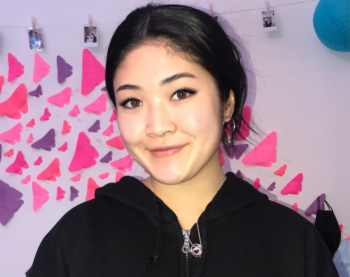
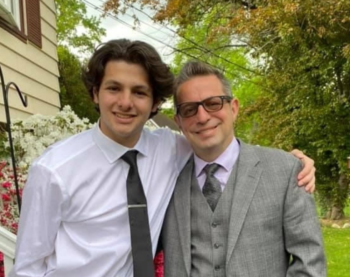
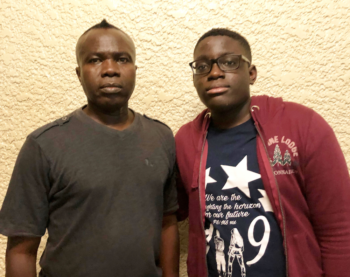
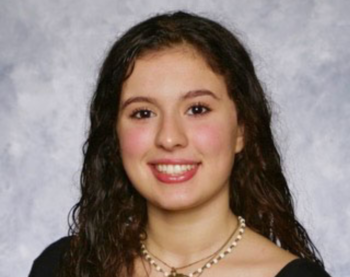
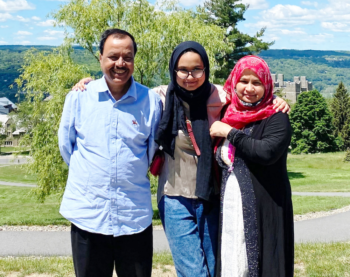
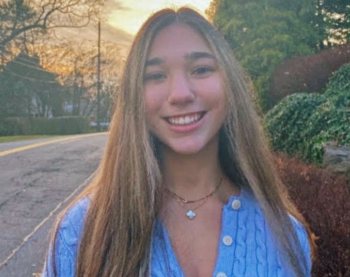
December 16, 2021 6:09 PM
The union's annual writing contest brought in plenty of excellent entries this year, and along with them came lots of praise for the high school students that submitted them. What's on the minds of high school students today? Well, the Supreme Court, the Second Amendment, the benefits of union membership, immigration, self-discovery and, most of all, the pandemic were topics chosen by multiple students. Highly intelligent essays on these and other subjects made for compelling reading, and there were also many gripping fiction and non-fiction narratives. The top prize in each category received $1,500 and there were four additional students who won $1,000 each. And then there was the grand prize of $3,000 for the top overall entry in the competition.
In the essay category many students tackled the difficult subject of how the pandemic has changed us. While quite a few students lamented the negative impacts of the coronavirus, Christina Anto had a different take. "I learned how much to value life and family." Christina wrote. "My family and I found time to rejoice through hard times. In only a few months I grew fluent in French, began to cook foods from different cultures, discovered how the stock market works, and even learned more about my own family's history." Most important of all, Christina wrote, was that the pandemic has taught us all how valuable time is. Her essay was a refreshing look at a situation that has depressed hundreds of millions of people around the world, making it worthy of a $1,000 prize in the essay category. Christine is the daughter of Johnson Anto, an employee of the Barclay Intercontinental.
Sabrina Fong, daughter of Sheraton New York employee Kim L. Fong, also wrote about how the pandemic has affected us. Sabrina, who also won a writing contest award last year, expressed in her essay regret about all the great things she missed out on due to school closure. But she looked at the other side of the issue as well, saying, "Typing away in this essay all the feelings I had bottled up I feel almost selfish and embarrassed because I know that the loneliness and isolation I experienced over the peak months of the pandemic are incomparable to the grief and struggles many others have faced, whether it be from losing loved ones or having to navigate through unemployment for the first time." An excellent writer, Sabrina concluded by saying, " As more and more inoculations take place I have faith there will soon come a time when we can all gather together like we used to and see the events of the past year as nothing more than a stepping stone to becoming a stronger collective society." We hope Sabrina is right about that! Sabrina won $1,000 for her poignant essay.
More students wrote about the pandemic than any other topic, and none was better than the essay submitted by Nicolas Matei, whose father, Gheorghe Matei, works at the Rainbow Room. His writing was so good it was deemed worthy of the first place prize of $1,500 in the essay category. "The virus was touching people everywhere and it was devastating to witness the emotional and psychological effect it was leaving behind," Nicolas wrote about the outbreak, explaining, "The fear of 'not knowing' kept us awake at night . . . the 'not knowing' how to protect ourselves and our families, the 'not knowing' who could be next, the 'not knowing' when we could see loved ones again, if ever." Nicolas succinctly expressed a thought that many had: "And then all of a sudden we became painfully aware of how much we had taken for granted, some of the privileges we had been enjoying all of our lives. The simple acts of hugging and shaking hands were now forbidden. In an instant we were asked to stay six feet apart, wear masks. No close contact. Not even with our grandparents. Especially with our grandparents!" There's more. Nicolas wrote about essential workers, saying, "We became aware of people who still had to go to work . . . we found ourselves thanking them for their dedication and commitment." Nicolas covered all the bases about the pandemic, even to the point of noting that "the generation that lived through the pandemic became resilient." In ending this superlative essay Nicolas summed it up this way: "We adapted, we grew strong . . . we became empathetic and compassionate and kind. We lifted each other up and vowed to hang in there until this was over, even when we didn’t know when this would be over. Our only hope is that we won’t revert back to our old selves but that we will always care for each other even when the pandemic becomes a thing of the past." We certainly share that thought with Nicolas!
Lawer Nyarko, whose father, Isaac Nyarko, works at the W Downtown, wrote a non-fiction narrative that won a $1,000 prize. Lawer's narrative is a stream of consciousness that spans a range of thought-provoking images. Regarding his own situation, he writes, "There is always the thought in the back of my mind that someone will just see some black kid and just become scared. And then some people feel like they have to act on this irrational fear and call the police. Then, this police person may have the same irrational fear and use this for grounds to arrest me. Like it isn't that hard for this one thing to spiral into something way worse." We all know how true that is, but Lawer doesn't stop there. He also takes on "Karens," confronting this particularly contemporary issue with a mix of well-deserved criticism as well as sardonic expression. Lawer's narrative would leave many readers saying, sarcastically, "Gee, Lawer, tell us how you really feel." But he really does tell us how he feels in this excellent true tale of self-expression.
Anais Bouchatta, the daughter of Djilalli Bouchatta of the Newark Renaissance Inn, won a $1,000 prize in the fiction/non-fiction narrative category for telling us about immigration from the eyes of an immigrant — herself. She wrote about being one of the winners of the visa lottery that allows legal immigration to the U.S., in Anais's instance from Algeria. Our country, which is now Anais's country, is wondrous to her, she says. She expresses gratitude to her family and friends for their support and she is certain her life is better here than it would have been if the lottery had not been so kind to her. She concludes that she is meant to be here, writing, "there's no doubt about it." We agree, Anais! You are indeed meant to be here and there is definitely no doubt about it.
Proof of great writing is always found in the work of Amira Shimin, who this year became a three-time winner in the writing competition, having also won prizes in 2019 and 2020. This year Amira, the daughter of Mohammad Kashem, who works in the Conrad Downtown, took first place in the narrative category with a fictional account of the 1947 partition of India as told by a teenage girl. There are reasons Amira is a three-time winner. Her writing flows smoothly and intelligently, and at the same time has a heartbeat. The partition of India was one of the greatest catastrophes of the colonial era, the ramifications of which are still felt today. We won't rehash all the brutalities that occurred during and after the partition, but Amira does a superb job recounting this shameful episode in history through the heartfelt narration of a young girl whose family is witnessing the debacle. We congratulate Amira on her first place prize of $1,500 in the narrative category. Her writing continues to amaze us and we wonder if we should begin looking forward to her first novel, perhaps sometime in the not-too-distant future.
It is, of course, quite difficult to choose the best overall entry in a competition that drew so many outstanding essays and narratives. But in the end Carly Dietz has won the honor of top prize for her essay with the topic "A Modern Day Hero."
"Carly Dietz's essay was as well structured as it was inspiring," said Bill Farrell, a former New York Daily News columnist and the author of Cradle of Champions. Farrell, who was one of the judges in the contest, added, "The way she laid out the issue and then concluded by circling back to the opening Is first class writing,"
Indeed, Carly's writing grabbed the reader right from the start, when she wrote, "It all started with a book. In eighth grade, I read 'The Promise of a Pencil' by Adam Braun. While Braun was traveling abroad as a college student he met a young boy begging on the streets of India, who, when asked what he wanted most in the world, simply answered, 'a pencil.' Braun was so inspired that he created an organization called Pencils of Promise (PoP)." Carly goes on to explain that Braun is her modern day hero because the non-profit organization he created "helps build schools and increases educational opportunities in the developing world. Since 2008 PoP has built 621 schools, supported 2534 teachers, and impacted 113,548 students in Ghana, Guatemala, Nicaragua, and Laos." But that's not all. Carly explained that a school can be built with just $50,000 in these developing countries. And even that's not all. Carly further explained how she worked beginning in eighth grade to successfully raise $50,000 to build a school in Laos, an extraordinary achievement for a student her age. She is now raising money to build a second school. "Adam Braun is my hero because he has inspired both me and thousands of other students to fight for the education they deserve," she wrote. "At such a young age Braun learned that a lack of proper education can lead to health and sanitation issues, gender inequality, shortage of qualified teachers, familial economic instability, and infrastructure hardships." Contending that "quality education can not only lead to better futures it can end the cycle of poverty," Carly ended her brilliant and inspiring essay by saying, "Braun has not only taught me about the power of education, but also the significance of perseverance and how it can turn dreams that appear impossible into reality." We agree with Carly that Adam Braun belongs on the list of modern day heroes. And we also believe we can add Carly's name to that list as well!
There you have it, the 2021 writing contest winners. Our thanks to all who took the time to participate in this event and we encourage all our members' children who will be in grades 10, 11 and 12 in April of 2022 to enter the competition when it is announced. We love reading what you have to say!


